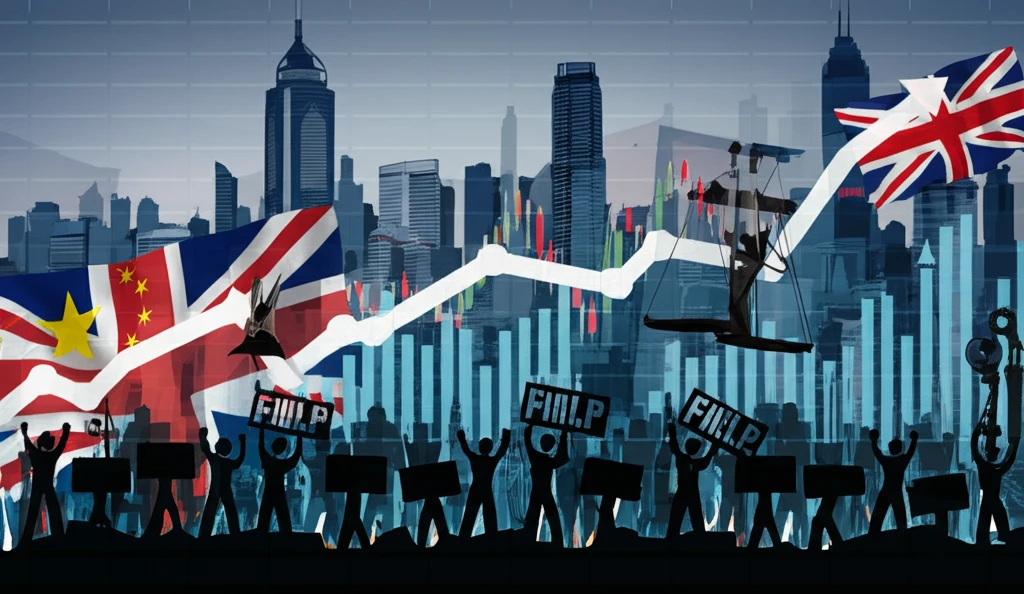
Hong Kong's Listed Companies Under Political Pressure: Decoding the Impact of the 2019 Protests
"A deep dive into how the 2019 extradition bill protests, known as the "anti-ELAB movement," significantly impacted the stock market and political connections of Hong Kong's listed companies."
In 2019, Hong Kong was rocked by a series of protests sparked by a proposed extradition bill. These demonstrations, often referred to as the "anti-ELAB movement," weren't just a display of public dissent; they sent ripples through the region's financial markets, causing significant fluctuations in the stock prices of listed companies.
Understanding how political events influence financial markets is crucial for investors, policymakers, and anyone with a stake in Hong Kong's economic future. While the impact of political instability on stock markets has been studied globally, the unique context of Hong Kong, with its "one country, two systems" framework and complex political landscape, demands a closer look.
This article delves into the financial impact of the 2019 protests on Hong Kong-listed companies, analyzing how different political affiliations— such as ties to the pro-democracy or pro-establishment camps—affected stock performance during this period of unrest.
Decoding Political Connections: Which Companies Were Most Vulnerable?

The study categorizes Hong Kong-listed companies based on their political connections, primarily focusing on ties to political parties and mainland China. The criteria included whether a company had board members affiliated with specific political groups, or if it was a mainland-controlled entity. These affiliations were then classified as either pro-democracy (supporting greater autonomy and democratic reforms) or pro-establishment (aligned with the central government in Beijing).
- Pro-Democracy Affiliations: Companies with board members affiliated with pro-democracy parties experienced a greater negative impact on their stock prices during the protest period.
- Mainland China Ties: Companies with strong ties to mainland China, such as those controlled by mainland entities or generating significant revenue from mainland operations, showed greater resilience during the protests.
The Takeaway: Political Ties Matter in Hong Kong's Financial Landscape
The 2019 Hong Kong protests highlighted the significant impact of political events on the region's financial markets. Companies with strong political connections, particularly those aligned with mainland China, demonstrated greater resilience during this period of unrest. This underscores the importance of understanding the intricate interplay between politics and economics when investing in Hong Kong's dynamic market.
